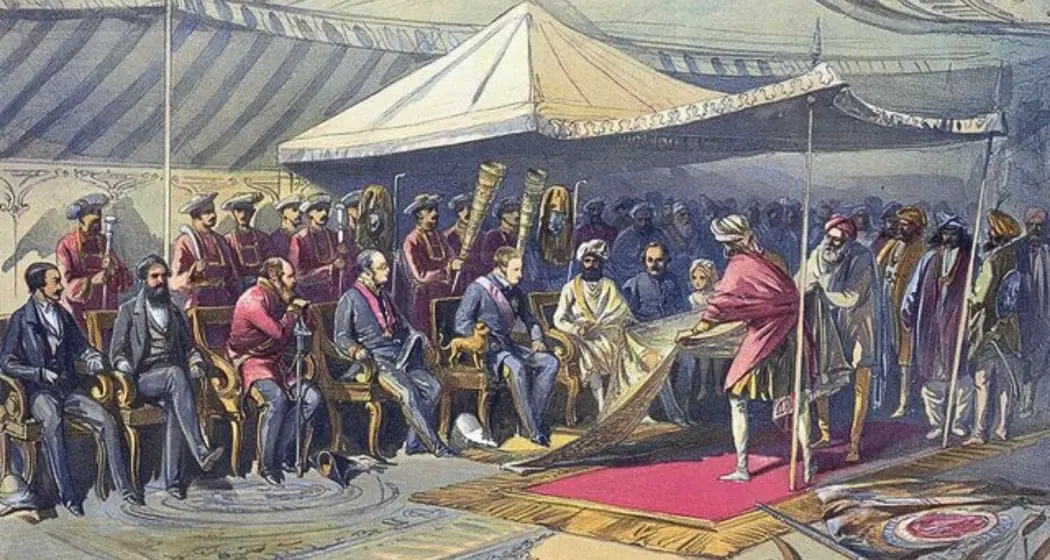The British colonial era left an indelible mark on India, extracting immense wealth from the subcontinent to fuel the United Kingdom’s prosperity.
According to Oxfam report titled “Takers, Not Makers,” the scale of this extraction was staggering, with the richest 10% of the UK benefiting disproportionately.
The report, released during the World Economic Forum’s annual meeting, sheds light on the extensive exploitation and its long-term effects on global inequality. The findings underline how the legacies of colonialism continue to impact societies and economies in the Global South.
Wealth Extraction and Disproportionate Enrichment of the UK’s Richest
Between 1765 and 1900, the British Empire extracted an estimated USD 64.82 trillion from India. Of this, a staggering USD 33.8 trillion—over half—went to the wealthiest 10% in the UK.
This wealth accumulation has had enduring consequences, reinforcing inequality both within the UK and globally. According to Oxfam, this amount could carpet London almost four times over with British pound 50 notes, highlighting the enormity of the plunder.
The primary beneficiaries of colonialism were not just the British aristocracy but also the newly emerging middle class in the UK, which received an additional 32% of the wealth.
Read : Davos Town of Switzerland Turned into Fortress for 2025 WEF Meeting
Colonial policies, such as heavy taxation and resource extraction, systematically impoverished India while enriching Britain. For instance, Britain’s protectionist policies devastated India’s once-thriving textile industry, reducing the subcontinent’s share of global industrial output from 25% in 1750 to a mere 2% by 1900.
Read : Global Gender Gap Will Take 134 Years to Close: WEF Report
The economic structures established during this period ensured that wealth flowed predominantly from the Global South to the Global North. These patterns persist today in the form of global supply chains dominated by multinational corporations, which exploit cheap labor and resources from the Global South for the benefit of shareholders in the Global North.
Multinational Corporations: Modern-Day Colonialism
Oxfam’s report traces the origins of modern multinational corporations to the colonial era, with entities like the East India Company serving as prototypes. These corporations wielded immense power, often employing private armies to suppress resistance and maintain control.
The East India Company, for example, maintained an army of 260,000 soldiers—twice the size of Britain’s peacetime military—enabling it to dominate vast territories and exploit resources.

Modern multinational corporations operate similarly, perpetuating wealth extraction through exploitative labor practices and monopolistic control. Workers in the Global South earn wages up to 95% lower than their counterparts in the Global North for comparable work.
These corporations dominate global supply chains, capturing significant profits while leaving workers in precarious conditions with minimal rights and social protections.
Global supply chains represent a continuation of colonial systems, as they disproportionately benefit the wealthiest individuals and nations. The report highlights how these systems rely on the exploitation of women workers and the extraction of natural resources, perpetuating cycles of inequality.
For instance, countries in the Global South continue to face economic dependence on resource exports, leaving them vulnerable to exploitation and environmental degradation.
The Lasting Impact of Colonialism on India and the Global South
The colonial period was marked by widespread exploitation and systemic injustices, many of which continue to shape modern societies. During British rule, India’s caste system was formalized through legal and administrative measures, entrenching social divisions.

Additionally, colonial policies like the promotion of opium production in eastern India exacerbated poverty and public health challenges. These regions remain underdeveloped, with lower literacy rates and inadequate public services compared to neighboring areas.
The economic devastation wrought by colonialism was further compounded by human suffering. Oxfam’s report estimates that 59 million excess deaths occurred in India under British rule between 1891 and 1920.
Policies such as grain import restrictions during World War II contributed to the Bengal famine of 1943, which claimed an estimated three million lives. These tragedies underscore the profound human cost of colonial exploitation.
Moreover, the colonial era laid the groundwork for modern global inequalities. The partitioning of India and the Ottoman Empire by colonial powers left lasting political and social scars.
Many countries in the Global South, including India, continue to grapple with the consequences of these divisions, which manifest in economic disparities, political instability, and social unrest.

Oxfam’s report paints a sobering picture of the enduring impact of colonialism on global inequality. The wealth extracted from India during British rule not only enriched the UK’s elite but also entrenched systems of exploitation and inequality that persist to this day. The report’s findings serve as a stark reminder of the need for reparative justice and systemic change to address the legacies of colonialism.
Modern multinational corporations, which trace their origins to colonial enterprises, must be held accountable for their role in perpetuating global inequality. Governments and international organizations must work together to ensure fair labor practices, equitable resource distribution, and meaningful investment in the Global South.
As the world continues to confront the consequences of historical injustices, it is imperative to learn from the past and build a more equitable future. The legacy of colonialism is not just a historical issue but a pressing challenge that requires urgent action to dismantle systems of exploitation and foster global solidarity.

